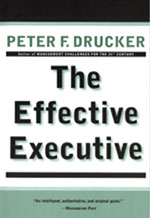 One stimulating by-product of writing a regular business column is that acquaintances often want book recommendations. What good books have you read lately, they ask. What do you suggest to read so we know how to handle employees and run our organisations well.
One stimulating by-product of writing a regular business column is that acquaintances often want book recommendations. What good books have you read lately, they ask. What do you suggest to read so we know how to handle employees and run our organisations well.
Most glossy management books, I tell them, are overpriced, over-hyped and terrible-no matter how high they climb on global bestseller lists. Yes, some become flavours of the month. But soon enough, they sink into oblivion, and are not of lasting help to most managers whose jobs call for managing resources and people.
In fact, it could be argued that Nepali managers can learn more about management by re-reading Shakespeare and Bal Krishna Sama than by understanding some clever marketing methods developed by Cisco or Apple in the United States. After all, to most people, what is management but a form of human drama that revolves around the lives of employees and one protagonist at the office, aka the boss?
Still, one management book I recommend again and again is Peter Drucker's classic The Effective Executive. Written in clear English, the 178-page book's thesis is beguilingly simple: executives can be knowledgeable, charismatic, or imaginative. But such traits mean nothing if those executives are not effective. If executives cannot manage themselves, they are unable to manage others, and so are ineffective. In other words, good self-management comes before good management. Fortunately, Drucker assures us, with enough practice, the art of managing oneself can be learnt by just about anyone, regardless of temperament.
Re-reading the book the other day, I was struck once again by what Drucker says about three critical executive tasks: managing time, setting priorities, and making decisions.
 Effective executives, Drucker says, do not start with tasks. They start with their time. An organisation with too many employees, where managers are always in meetings, and where much effort is spent on fighting yesterday's fires is a time-waster. Drucker's advice to executives in such organisations is that they watch how they spend their time, and consolidate discretionary time to tackle routine activities, and set aside large chunks of uninterrupted time to do work that is likely to take their organisations forward.
Effective executives, Drucker says, do not start with tasks. They start with their time. An organisation with too many employees, where managers are always in meetings, and where much effort is spent on fighting yesterday's fires is a time-waster. Drucker's advice to executives in such organisations is that they watch how they spend their time, and consolidate discretionary time to tackle routine activities, and set aside large chunks of uninterrupted time to do work that is likely to take their organisations forward.
Drucker is no fan of multi-tasking. Even a juggler, he says, can only keep the balls up in the air for about 10 minutes. Having observed many executives in action, Drucker reports that the effective ones concentrate on completing one future-oriented activity at a time before moving on to finish other tasks. This way, at any given time, such executives are likely to have completed more tasks than have a perpetual display of many half-begun and unfinished activities.
In his discussion about the elements of decision-making, Drucker talks about the importance of converting decisions into actions lest they remained just intentions.
Most decisions, he says, do not have an action element woven into them as someone's work assignment. This ensures that most decisions are never carried out. For the ones that are carried out, there is often no system to accept feedbacks, and that further ensures that little gets learnt about how the ultimate results compare against earlier expectations.
At its root, management means getting things done by using resources through people. To practice it well, there's no need to buy every business bestseller that appears in bookstores. One favour thinking managers can do for their own effectiveness is to apply the lessons of Drucker's book to how they manage.



